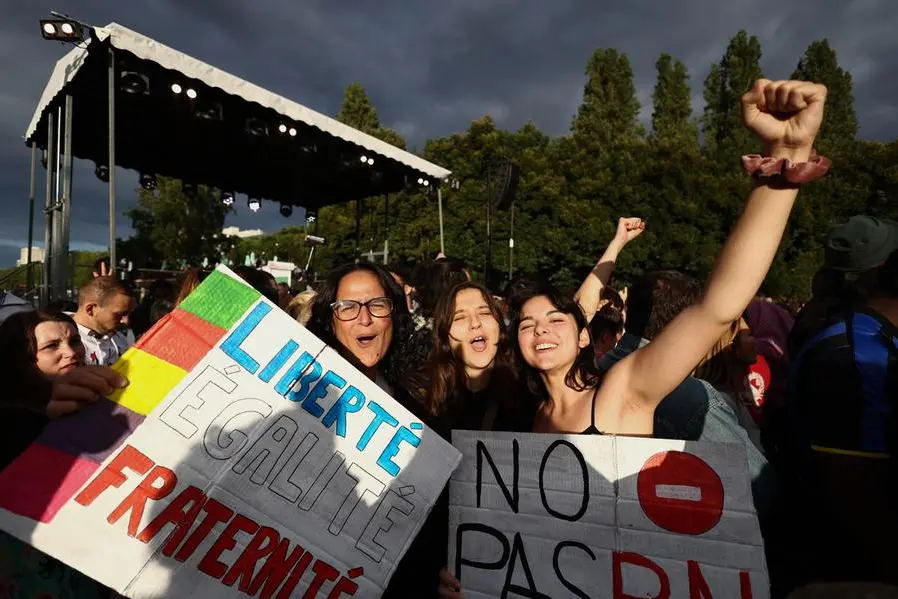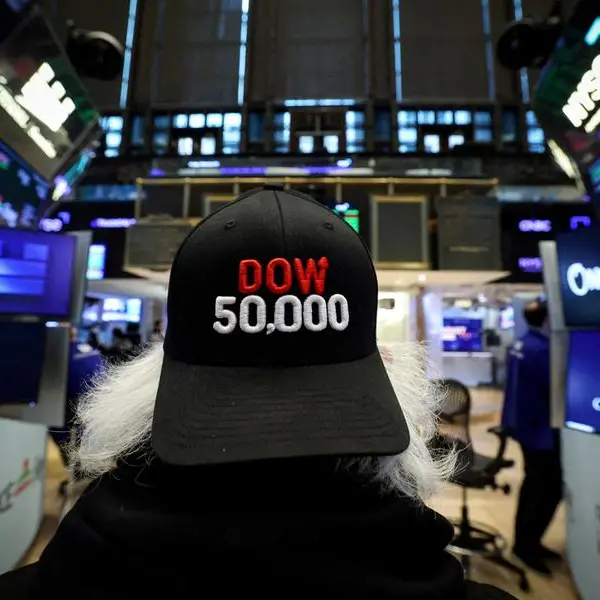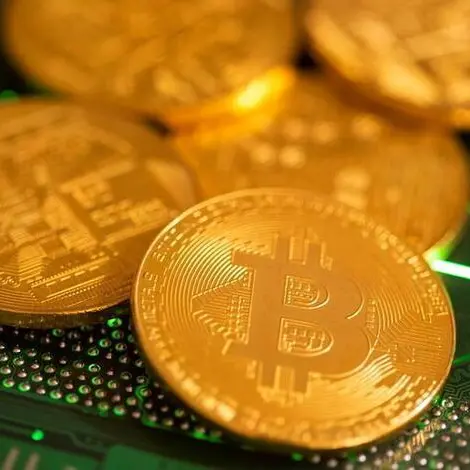PHOTO
A shock election win for France's leftist alliance has reinforced wariness among investors who had already braced for the risk of political deadlock and a policy paralysis that's unlikely to improve the country's creaking public finances.
The left-wing New Popular Front (NFP) alliance won the most seats in Sunday's election, but fell far short of an absolute majority, a big surprise after Marine Le Pen's far-right National Rally (RN) led opinion polls.
France, at the centre of the euro project and the bloc's second biggest economy, still faces a hung parliament and taxing negotiations to form a government as markets had already anticipated - just with the left in pole position, rather than the far-right.
The risk premium, or spread, for holding France's debt over Germany's was at 65 basis points on Monday, a touch lower from Friday. It remains below the 12-year high hit in June at 85 bps.
Still, that gap is not expected to tighten again rapidly with concern fixed on what France's new political climate means for its stretched public finances that have left it facing European Union disciplinary measures.
Debt stood at 110.6% of output in 2023.
"For any budget to be passed in the new assembly, probably at the margin some fiscal loosening is required to get a compromise," said Kevin Zhao, head of global sovereign and currency at UBS Asset Management, which manages $1.7 trillion in assets.
Market relief proved tentative on Monday. France's main CAC 40 stocks index, down 3.7% since Macron called the election, rose as much as 0.8% on Monday then gave up all its gain.
Shares in France's three biggest lenders - BNP Paribas , Societe Generale and Credit Agricole - which have dropped as much as 9.8% since June 9, also reversed earlier gains and were down 0.4%-1.2% at 1418 GMT.
Banks had been hard hit in the run-up to the vote on concerns that higher political uncertainty would translate into increased economic risks and fears of possible windfall taxes.
With the left more than 100 seats short of an absolute majority and President Emmanuel Macron's centrist grouping in second place, a hung parliament was still seen as the best outcome for investors in French assets, with it expected to limit the left's spending plans and avert a potential budget-driven market crisis.
The NFP's plans include scrapping Macron's pension reform raising the minimum wage and capping the prices of key goods.
It says the costs of its program would be offset by measures including tax increases.
But some investors had deemed an NFP absolute majority a bigger threat to markets than the RN, as the left alliance has said it doesn't plan to reduce France's high budget deficit.
"When you look at the composition of the parliament, the bar for the far-left to start doing anything market unfriendly is very, very high," said Gabriele Foa, portfolio manager at Algebris Investments, noting that the more moderate Socialists won a sizable share of the NFP seats.
Possibilities for a new government include the NFP forming a minority government, Macron peeling off Socialists and Greens from the NFP to isolate Jean-Luc Melenchon's far-left France Unbowed for a coalition with his own bloc, or a technocratic government.
NO RESPITE
Still, a hung parliament was not seen by investors as good news for France's public finances and investors expected the country's budget deficit -- at 5.5% of output last year -- to stay elevated.
Melenchon said the NFP would execute its programme, while Socialist leader Olivier Faure said Macron's pension reform must be cancelled.
S&P Global Ratings warned on Monday that France's credit rating, which it recently downgraded, would come under pressure if economic growth falls short of projections or the budget deficit cannot be reduced.
Analysts do not expect the French/German bond spread to return to the roughly 50 bps level seen before Macron called the election.
"To be able to step (back into) French debt, will mean that we have guarantees from the government that they are taking good decisions to restore the fiscal and budgetary balances," said Matthieu de Clermont, head of insurance and regulatory strategies at Allianz Global Investors.
"I'm not sure we'll get that any time soon."
Some investors said the French-German spread could widen again if uncertainty drags on, raising the cost for France to borrow on international bond markets relative to its neighbours, potentially increasing pressure on the budget.
"The biggest risk other than near-term headlines is what happens with the EDP and negotiations with the European Commission," said Schroders fund manager James Ringer, referring to the EU's budgetary discipline measures.
Investors remained cautious on French assets as they said it was too early to gauge what a new government would look like. The risk of another election in a year's time is not ruled out.
"It is probably going to take weeks, if not months, before Macron and others sort out their alliances." said Anders Persson, chief investment officer, head of global fixed income at Nuveen, which manages $1.2 trillion in assets.
He remains underweight French government bonds.
(Reporting by Yoruk Bahceli and Samuel Indyk; editing by Dhara Ranasinghe and Toby Chopra)





















